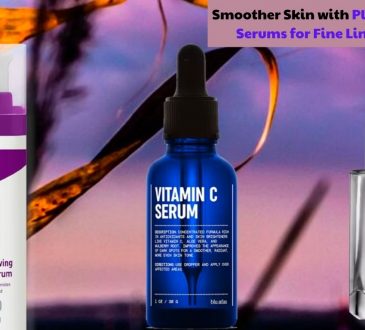Impressive Benefits of Niacin for skin, hair and health
Niacin is known as vitamin B3, this nutrient is water-soluble and is found in some common foods like meat, tuna, nuts, mushrooms, and more. It is part of the B-complex vitamin, which also includes thiamine (vitamin B1), riboflavin (vitamin B2), and others. Niacin is the medical name for vitamin B3 and comes in three forms – nicotinic acid, niacinamide (also called nicotinamide) and inositol hexaniacinate. It is an important vitamin and beneficial in a number of ways – right from protecting the heart and improving metabolism to enhancing brain function and supporting diabetes treatment. Nicotinic acid acts as a supplement and is used to treat high blood cholesterol and heart disease. Niacinamide can help treat type 1 diabetes, certain skin conditions and schizophrenia (however, it does not lower cholesterol). Hence, certain forms of niacin give you certain benefits. We strongly advise you to consult with your doctor to understand what that is. Well, the benefits of Niacin are numerous. Let’s find out how niacin works.
Contents
How does Niacin work?
In simple terms, niacin helps enzymes do their job. Specifically, niacin is a major component of NAP and NADP, two coenzymes involved in cell metabolism. Niacin also prepares and repairs DNA and even acts as an antioxidant.
But hey, how do you know if you’re getting enough niacin? The next section can help you understand.
Benefits of Niacin (Vitamin B3)
While some of the supported benefits of niacin have conflicting evidence, this vitamin improves skin and brain health, along with improved digestion and arthritis symptoms.
Improve heart health

Niacin is often used to improve good cholesterol levels, which in turn, lowers bad cholesterol – ultimately strengthens the heart. Niacin works by blocking the way your liver makes cholesterol.
But stay tuned – niacin seems to work only in people already on cholesterol medications. And sources say it can often cause bothersome and dangerous side effects. Therefore, make sure you speak with your doctor before taking niacin to the heart as there is conflicting evidence on this matter.
Can help treat type 1 diabetes
This may be true for type 1 diabetes, where the immune system mistakenly attacks cells in the pancreas that produce insulin. Niacinamide can protect these cells for a while. But we need more research to understand whether niacin may help in the long term.
High-dose niacin also reduces the risk of type 1 diabetes in at-risk children, but that’s only the result of a preliminary study.
Can improve skin and hair health
Niacin is known to increase the water content in the skin – and this can be achieved by applying topical nicotinamide cream. Creams are also found to help treat acne.
Niacin also has beneficial effects against rosacea, which is a skin condition that causes red, flushed, pustules, and red blemishes.
Niacin is also known to have beneficial effects on skin cancer. Studies have shown that it can prevent pre-malignant cells from becoming malignant. And speaking of anti-aging, niacin plays its role. One study found topical niacinamide helps reduce wrinkles and skin elasticity problems associated with aging.
Some reports say that niacin improves the health of hair follicles.
Enhances brain function

Niacin is so important to the brain that brain fog and a number of other psychiatric symptoms have been linked to its deficiency. Additionally, research has shown that some forms of schizophrenia can be treated with niacin – as this vitamin helps in repairing damage done to the brain.
Niacin may also prevent dementia in the elderly and aid in depression. It may keep the brain healthy in case of Alzheimer’s. However, the results were mixed.
Can treat erectile dysfunction
Studies have concluded that niacin can improve a man’s ability to maintain an erection if they are suffering from erectile dysfunction. Since it’s just a vitamin, experts feel using niacin is a simple and safe way to treat erectile dysfunction and impotence.
In addition, erectile dysfunction can be caused by inflammation of the blood vessels. The anti-inflammatory properties of niacin are illustrated here.
But in case you have already taken medication for erectile dysfunction, talk to your doctor before taking niacin. This is because in the past it was often possible to lower blood pressure levels, and so did niacin. The two, together, can lower your blood pressure too much.



